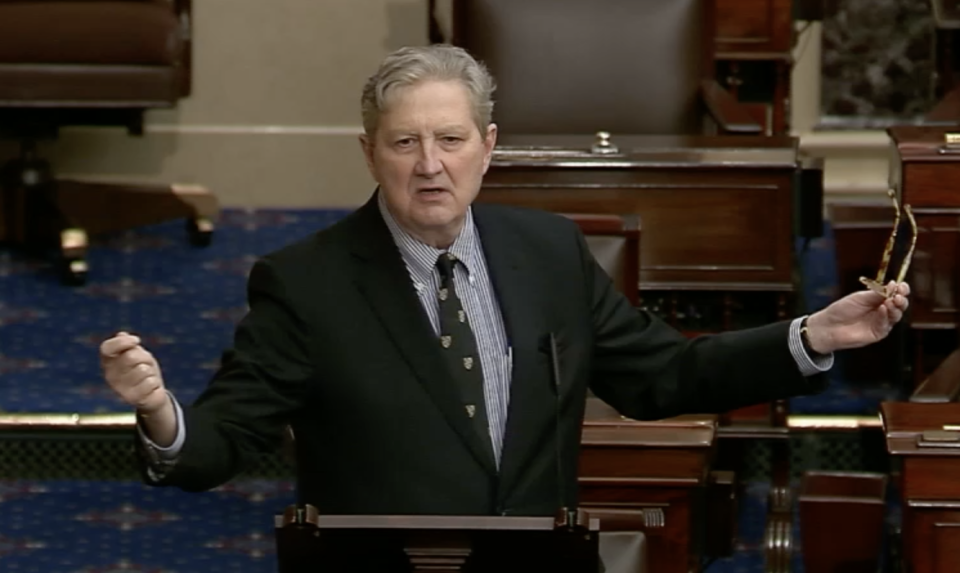Elaine Sevin Falcon
December 8, 2006
Ellender beats Braves, 76-67
December 12, 2006NEW ORLEANS (AP) _ A newly approved federal plan to share Gulf of Mexico drilling royalties with Louisiana and other Gulf Coast states hopefully will fuel a boost in optimism among coastal residents worried about the future of their vulnerable, storm-battered communities, U.S. Sen. Mary Landrieu said.
“It would have been a serious psychological setback to redevelopment,” if Congress had failed to approve the measure, Landrieu said.
Passed by both houses on Capitol Hill and sent to President Bush early Saturday morning, the legislation represents a historic national investment in Louisiana. It will send billions of dollars here _ as well as to Mississippi, Texas and Alabama _ for the purposes of rebuilding eroded coastal lands and fortifying hurricane protection.
While most of the money Louisiana stands to get from new offshore oil production will not begin to flow directly to the state for 10 years, the committed revenue stream means the state can begin selling bonds to finance coastal protection projects right away.
In addition, the proposed law opens up a new 8.3 million-acre tract of the Gulf to drilling, and the new sharing formula will begin for new leases in that area immediately. The legislation also extends by two years, or until 2010, Gulf Opportunity Zone _ or GO Zone _ tax credits.
The GO Zone incentive, passed in late 2005, allows businesses to take a 50 percent tax reduction for new facilities or equipment in areas affected by hurricanes Katrina or Rita.
Therefore, more than financing better barriers to protect against flooding from storm surge, the bill also should spur additional investment and job creation, lawmakers said.
“This is not only morale boost, but an economic anchor dropped in the Gulf to secure the region,” Landrieu said.
The chief measure in the legislation would provide Gulf Coast states with 37.5 percent of federal royalties from new oil and gas leases off of their coasts.
Incidentally, that was the same sharing formula offered by President Truman in 1949 and rejected by Louisiana in a bid to get more. That move failed and has cost the state billions of dollars since.
Projected revenues for Louisiana under the new sharing plan are about $13 billion over the first 30 years, all of which is to be used for storm protection and coastal restoration.
That is in addition to more than $8 billion in emergency spending on flood protection already committed to Louisiana and less than half spent so far, said Sen. David Vitter, R-Metairie.
Applauding Louisiana’s Congressional delegation, Gov. Kathleen Blanco called the revenue sharing measure a “critical first step we’ve been waiting for as we go forward with our long-term coastal protection and restoration efforts.”
“This dedicated revenue stream will provide the foundation of financial support we need to ultimately complete what will be the largest public works project in our nation’s history,” Blanco said.
The revenue sharing plan was attached to a larger tax package that included numerous provisions lawmakers favored _ ranging from extension of tax breaks for college costs to building more energy efficient homes and protecting Medicare funds.
Not all of its provisions were popular with coastal Louisiana residents. The measure also loosens restrictions on seafood imports, which Louisiana’s fishing industry opposed.
“I’ve looked at these trade provisions very, very carefully, particularly with regard to Louisiana fishermen’s concerns about Vietnam,” Vitter said. “Although I understand their very strong concerns, I’ve decided that both of these trade initiatives are, on balance, good for America and Louisiana.”








